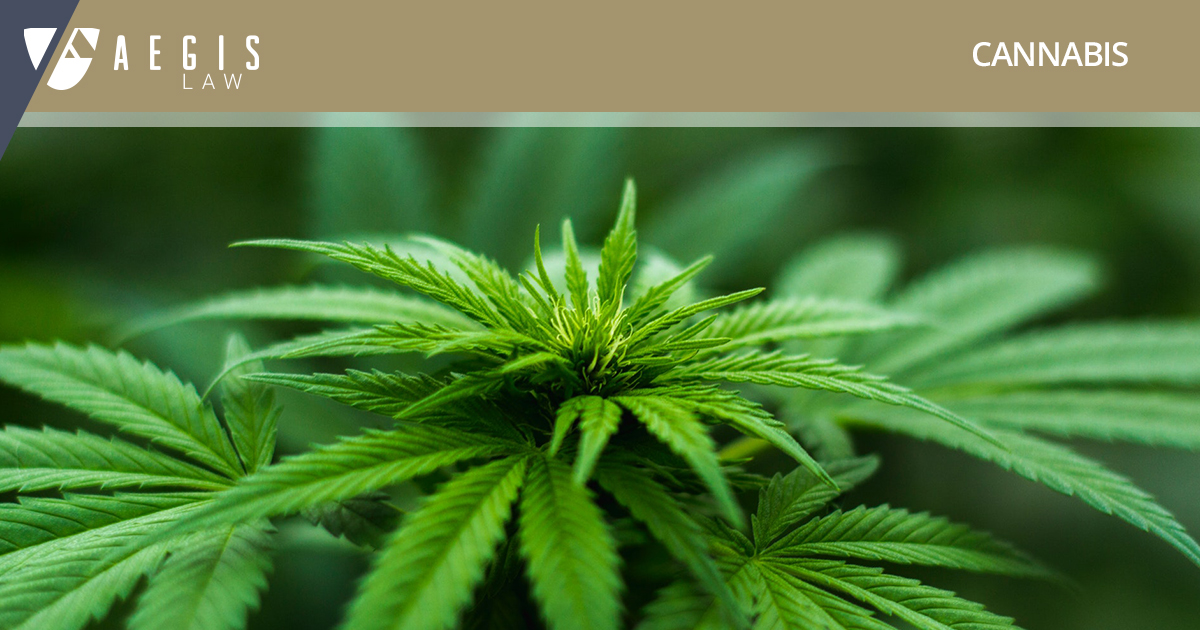By Jeffrey L. Wax, AEGIS Law (jwax@aegislaw.com)
This past Monday, November 25, 2019, the U.S. Food and Drug Administration announced enforcement actions against fifteen (15) companies selling CBD products for consumer use. The enforcement actions consist of warning letters, nothing more (yet), but it is significant that the FDA took action at all. See https://www.fda.gov/news-events/press-announcements/fda-warns-15-companies-illegally-selling-various-products-containing-cannabidiol-agency-details (last checked Nov. 27, 2019).
CBD products have become ubiquitous over the last year. They are popular for their reputed anti-inflammatory and other therapeutic effects, but little formal scientific research has been done. So what does the FDA think about CBD?
The FDA considers products containing CBD to be a drug because they are intended to have a therapeutic or medical use or to affect the structure or function of the human body. The only CBD-containing drug approved by the FDA is Epidiolex, which is used to treat some forms of epilepsy. One of the main points made by the FDA in its warning letters is that, because CBD has previously been approved as a drug, it cannot be treated as a supplement or added to food.
The FDA warning letters critique statements made by CBD retailers on websites and social media accounts, such as the following:
- “CBD oil can be used to treat common health issues such as acne, anxiety, depression, and help cancer patients;” and
- “The findings of a recent study demonstrated that CBD had improved behavioral outbreaks, communication problems, anxiety, stress and disruptive behavior in children diagnosed with autism.”
The letters also criticize labeling CBD as a supplement, adding it to food, providing dosing instructions, or feeding it to animals, and using “Supplement Facts” panels on labels.
The FDA’s announcement also warned readers of certain potentially harmful side effects: “potential liver injury, interactions with other drugs, drowsiness, diarrhea, and changes in mood.” The FDA questioned CBD’s cumulative impact on children and pregnant or breastfeeding women. Finally, the FDA stated that animal studies show CBD can interfere with “the development and function of testes and sperm, decrease testosterone levels and impair sexual behavior in males.”
How can a CBD business protect itself? Certainly it helps to avoid making strong, specific, or perhaps any statements about what CBD does. Let CBD’s reputation speak for itself. But there is no magic solution, no formula that if you say X, Y, and Z, you are free and clear. The facts are: (a) the FDA’s present position is that CBD should be treated as a drug and not as a supplement or be added to food; (b) CBD sellers are skirting the rules at the risk of being caught; but (c) enforcement has been spotty and relatively lax; and (d) industry and congressional pressure may result in the FDA ultimately softening its position. If you are going to sell CBD, it is a business decision as to your level of risk tolerance.
So, to avoid running “a-fowl” of the FDA, don’t stuff your turkey with CBD this Thanksgiving. Instead, let CBD stand for CranBerries are Delicious! Happy Thanksgiving!
AEGIS Law is a leader in working with cannabis industry clients in Missouri and other states. If you are interested in becoming part of the emerging cannabis industry in Missouri, contact AEGIS Law today.




